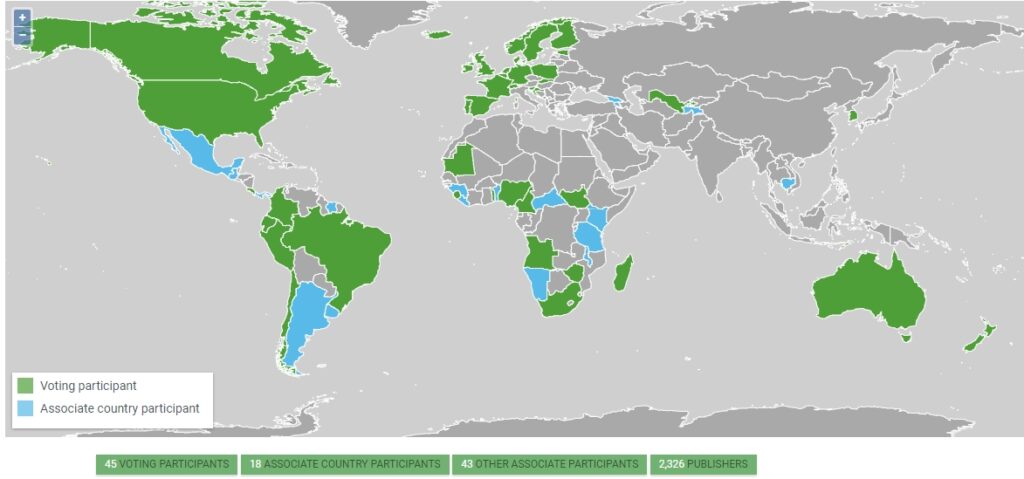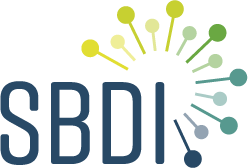The GBIF network
GBIF Sweden is the operational SBDI unit providing information and contributing to the development of the international network of GBIF nodes. SBDI will contribute to all aspects of the GBIF network, including data delivery, development of the technical infrastructure, organizational activities, and capacity building.
GBIF
GBIF—the Global Biodiversity Information Facility—is an international network and research infrastructure funded by the world’s governments and aimed at providing anyone, anywhere, open access to data about all types of life on Earth.
Coordinated through its Secretariat in Copenhagen, the GBIF network of participating countries and organizations, working through participant nodes, provides data-holding institutions around the world with common standards and open-source tools that enable them to share information about where and when species have been recorded. This knowledge derives from many sources, including everything from museum specimens collected in the 18th and 19th century to geotagged smartphone photos shared by amateur naturalists in recent days and weeks.
The GBIF network draws all these sources together through the use of the Darwin Core standard, which forms the basis of GBIF.org’s index of hundreds of millions of species occurrence records. Publishers provide open access to their datasets using machine-readable Creative Commons license designations, allowing scientists, researchers and others to apply the data in hundreds of peer-reviewed publications and policy papers each year. Many of these analyses—which cover topics from the impacts of climate change and the spread of invasive and alien pests to priorities for conservation and protected areas, food security and human health— would not be possible without this.

Background and history
GBIF arose from a 1999 recommendation by the Biodiversity Informatics Subgroup of the Organization for Economic Cooperation and Development’s Megascience Forum. This report concluded that “An international mechanism is needed to make biodiversity data and information accessible worldwide”, arguing that this mechanism could produce many economic and social benefits and enable sustainable development by providing sound scientific evidence. The OECD panel specifically recommended the establishment of a Global Biodiversity Information Facility, to:
“enable users to navigate and put to use vast quantities of biodiversity information, advancing scientific research … serving the economic and quality-of-life interests of society, and providing a basis from which our knowledge of the natural world can grow rapidly and in a manner that avoids duplication of effort and expenditure.”
That recommendation was endorsed by OECD science ministers and, in 2001, GBIF was officially established through Memorandum of Understanding between participating governments. The central facilities of the global organization and certain activities outside the secretariat in Copenhagen are funded through economic commitment by its voting members.
GBIF Sweden
Sweden is one of the founding countries of the Global Biodiversity Information Facility (GBIF) and has been a member since the start in 2001. The Swedish Museum of Natural History in Stockholm has hosted the Swedish participant node since the Swedish GBIF node was established in 2003.
The goal of GBIF Sweden is to regularly collect and share current biodiversity data from Swedish institutions and government authorities through the global GBIF portal. Additionally, GBIF Sweden aims to gather information about Swedish biodiversity from sources outside the country and make it available to stakeholders within Sweden. GBIF Sweden plans to make significant contributions towards improving data collection, flow, and visualization through the development of technical solutions. Lastly, GBIF Sweden aims to promote digitization efforts to enhance the quantity and quality of content provided to GBIF by Swedish institutions.
The Swedish GBIF Node is mainly funded by the Swedish Research Council as part of the national Research infrastructure, SBDI, Swedish Biodiversity Data Infrastructure (Grant No: 2019-00242). The Swedish Research Council is also administering the membership fee to GBIF on behalf of the Swedish Government. The Research Council further holds the position as Head of Delegation of GBIF Sweden. The Swedish Research Council representative, Ulf Jonsson, acts as the Swedish Head of Delegation, seconded by the Node Manager, Veronika A. Johansson.
